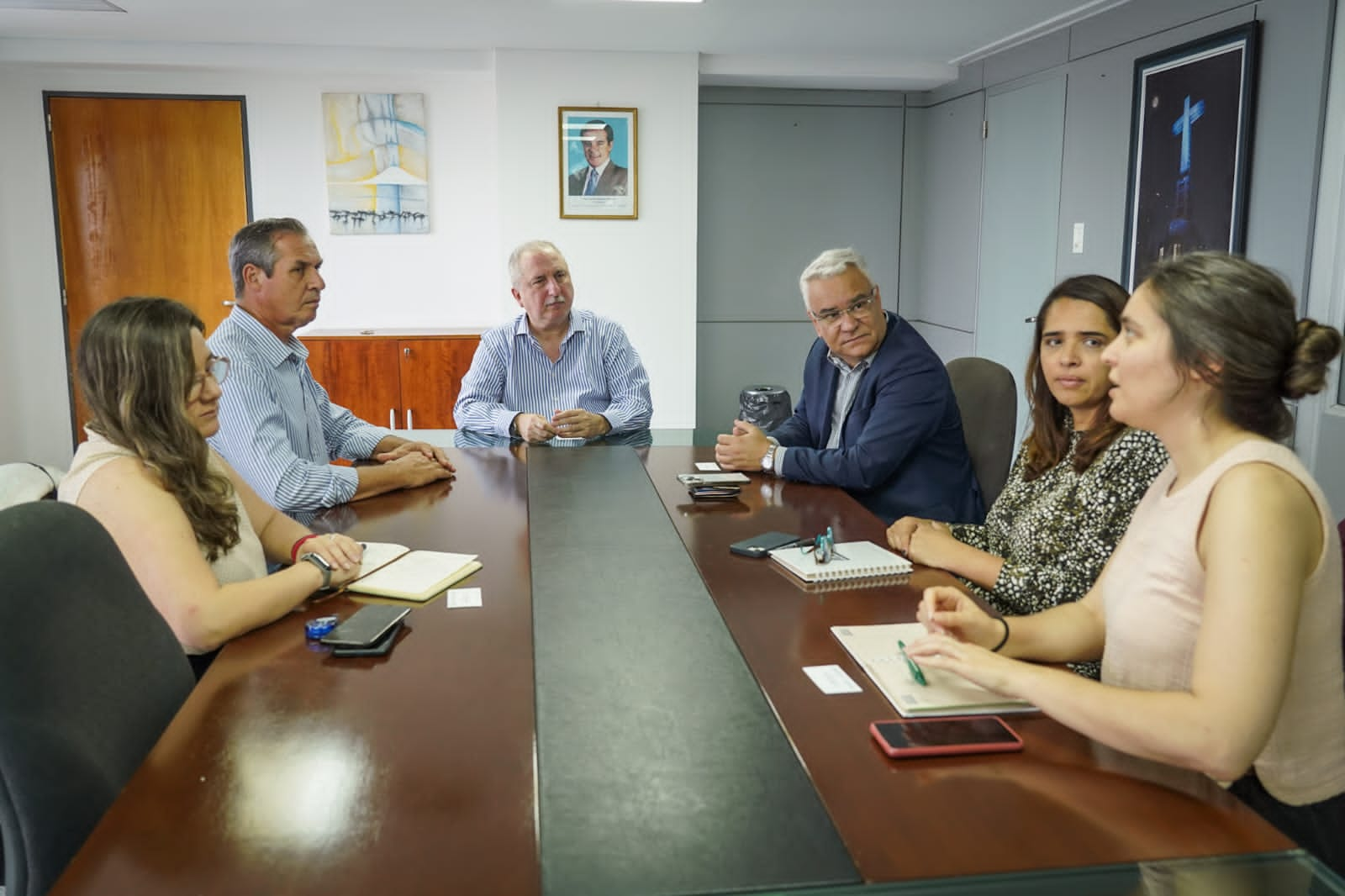The province has a longstanding tradition producing yerba mate, a plant species that has given rise to an industry of great economic and social importance, as a source of income for thousands of family farmers.

Posadas, Argentina, 9 November 2023 (IICA) – Production sectors and officials of the northeastern Argentinean province of Misiones, which stands out for its rich biodiversity and wealth of natural resources, held several meetings with representatives of the Inter-American Institute for Cooperation on Agriculture (IICA). Together, they achieved progress in developing a joint work agenda that will focus on striking a balance between production and environmental conservation.
Considered a biodiversity hotspot, Misiones is located in northeastern Argentina, in the Selva Paranaense ecoregion. Bordering Brazil and Paraguay, it is home to 52% of Argentina’s biodiversity, with hundreds of species of mammals, birds, freshwater fish, reptiles, amphibians and thousands of plants and fungi.
The province has a longstanding tradition producing yerba mate, a plant species that has given rise to an industry of great economic and social importance, as a source of income for thousands of family farmers.
Fernando Camargo, IICA Representative in Argentina, was welcomed to Posadas by Juan José Szichowski and Ricardo Maciel, President and Vice-President, respectively, of the National Yerba Mate Institute (INYM), with whom he discussed topics related to the bioeconomy, especially the ecological transition of yerba mate production (bioinputs and energy efficiency) and value-adding in production.
They also discussed the possibility of delivering technical cooperation to strengthen differentiated policies in territorial systems, with special emphasis on small-scale yerba mate producers, who total more than 13,000.
Camargo also met with Hugo Passalacqua, governor-elect of the province of Misiones, and with Provincial Deputy Mario Vialey, former Minister of Ecology and Natural Resources, with whom he discussed strategic lines of action to preserve biodiversity and promote the ecosystem services that Misiones provides to the country and region.
“Societies no longer allow production activities to disregard environmental protection, as they did in the past. In recent years, agriculture has made great strides in terms of integrating food production and the conservation and restoration of degraded ecosystems through good practices. The native forests of Misiones make a fundamental contribution to the global fight against climate change”, remarked Camargo.
Family farming
Viviana Rovira, President of the Biodiversity Institute of Misiones (IMIBIO) and her colleagues described the public policies for conservation to the IICA team, which also included Carolina Pivetta, Ana Echeverri and Florencia Gómez, Coordinator, Administrator and Environmental Consultant, respectively, of the IICA Delegation in Argentina.
IMIBIO is a one-of-a-kind public institution in Argentina that develops initiatives aimed at strengthening the province’s food production sector, while emphasizing the value of local resources. It also provides technical assistance, production alternatives, training opportunities and applied research.
The fundamental role of small-scale farmers in food security and natural resource protection was the topic addressed with the Minister of the Secretariat of Family Farming, Marta Ferreira, with whom the IICA team shared the Institute’s strategic lines of action in gender and youth topics.
The Minister described the progress achieved by the province with respect to differentiated policies for family farming, as well as provincial laws that guarantee the continuity of public policy.
Avenues for cooperation in the field of tobacco production, floriculture and beekeeping were also discussed during a meeting with Facundo López Sartori, Minister of Agriculture and Production, and the Director General of Agricultural Economics, Arabela Soler. Specifically, the meeting participants discussed different opportunities to strengthen the work areas prioritized by the province, such as connectivity and rural retention.
More information:
Institutional Communication Division.
comunicacion.institucional@iica.int











